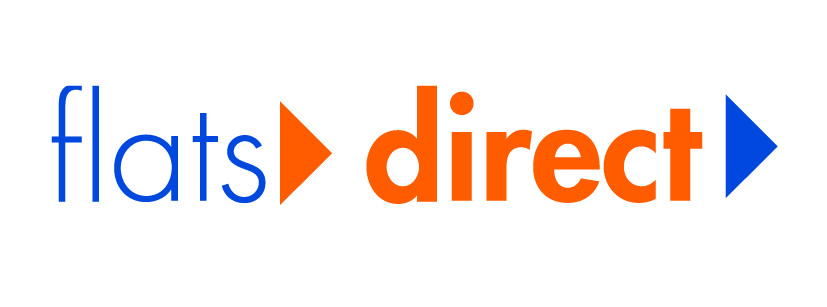Glossary
Insurance Jargon – some helpful explanations
Declared Value
This is a figure that represents the rebuild cost of a block of flats, or property converted into flats (including garages, outbuildings, walls, carparking, electronic gates etc) if it was completely destroyed. It is the cost of the materials and labour to reinstate the property as it was before it was destroyed.
The Declared Value should also include an allowance for the cost of debris removal, architects and other professional fees that could be incurred in rebuilding.
It is sometimes referred to as the Reinstatement Value or Rebuild Cost.
Day-One Basis is sometimes used and means the Declared Value at the start of the insurance period.
Buildings Sum Insured
This is a figure that represents the maximum amount your Insurer will pay for rebuild cost of a block of flats in the event of a loss. It also allows for any inflation in property rebuild costs that could occur during the period of the insurance and indeed the time it takes to complete the rebuilding. Insurers typically uplift the Declared Value by 25% - 30% to ensure the resultant Building Sum Insured is more than adequate.
Average
In the event of a claim on the block insurance policy the Insurer or its appointed Loss Adjuster may check to see that the Declared Value is adequate. If it is not, they may rely upon a clause within the Insurance Policy called Average, Average Condition or Underinsurance.
This could mean that if the property is insured for 50% of its correct rebuilding cost then Insurers only pay 50% of the claimed amount. This can apply to a total loss (e.g. destruction by fire) or a partial loss (e.g. damage caused by a leak). The clause or condition of the block of flat insurance policy may vary between Insurers. One example is where the Insurer compares the Buildings Sum Insured to the correct rebuilding cost and if the Buildings Sum Insured is less than 85% of the correct rebuilding cost, they will apply the Average or Underinsurance clause.
Index Linked
It is vital that the block management company ensure that the flats are insured for the correct rebuilding cost, a value that can increase each year depending on increasing costs of materials and labour. New building regulations might also add to the rebuild cost. Most policies specifically designed for blocks of flats make provision for inflationary increases each year. The Declared Value is automatically index linked by the annual percentage shown in the Building Cost Information Service (BCIS) Index which is provided by the Royal Institute of Chartered Surveyors (RICS). However, there is a problem if the starting figure is wrong. It is generally thought that the Management Company should get the property valued by a building’s surveyor/valuer at least every five years unless it is completely confident the current figure is correct.
Terrorism Insurance
Insurance policies for individual houses include cover for damage or loss caused by an Act of Terrorism. However, block of flats insurance is classed as commercial and Terrorism cover is excluded. It can be provided as additional cover and there is an additional cost. The cover can be provided under the block of flats insurance or as a separate Terrorism policy with another insurer.
The residential property management should consider whether it needs the additional cover and this may be determined by the lease (which may make it a requirement), some mortgage companies may insist on it, or the location of the property may be such that the cover is desirable (city centres, near tube stations, next to religious buildings, MOD property etc). This insurance cover can be expensive in city centres and relatively cheap elsewhere.
Employers’ Liability
Employers’ Liability Insurance protects the Insured against claims made against them by an employee who is injured during the course of carrying out their work for the employer. A person can be considered to be an employee even without a formal contract of employment in place. Occasional casual labour paid for from petty cash (e.g. cleaner or gardener) could be construed as employees. Directors and Officers of the Management Company or Right to Manage Company whilst generally unpaid volunteers could be deemed to be employees in certain circumstances, and as Employers’ Liability Insurance is compulsory, cover must be arranged.
Property Owners’ Liability
The block management company or Right to Manage company has a legal duty to provide a safe environment for visitors and any other person legally on the premises be they visitors, contractors or delivery people. If it fails in this duty of care it could be held legally liable for the injury to that person (or indeed damage to that person’s property) resulting in costs and damages being awarded against it. Property owners’ liability provides protection against these costs. Slips and trips are quite a common claim these days, helped to an extent by the compensation culture that’s emerged and the rise of no-win no-fee legal services. Insurers try to settle such third-party claims before they reach the courts.
Some policies refer to this cover as Public Liability or Liability to Third Parties
Communal Contents
The definition of ‘buildings’ under a block of flats insurance policy includes permanent fixtures and fittings in the communal areas and inside the individual flats (e.g. Bathroom and kitchen fitted units). Many blocks of flat insurance policies will automatically provide cover for communal contents in common areas, but normally only for a fairly low limit or a “standard” amount, e.g. £5,000. Management Companies should check to ensure there is cover and that the sum Insured for Communal Contents is sufficient.
Block of flats insurance policies are not designed to cover leaseholders’ or tenants’ personal property; they should arrange their own contents cover for this.
If you’re looking for a block insurance policy, fill out our quick form to get an online quote for block of flats insurance.



